The Power of Representation and Mobilizing a Community-First Approach to Vaccine Equity and Access
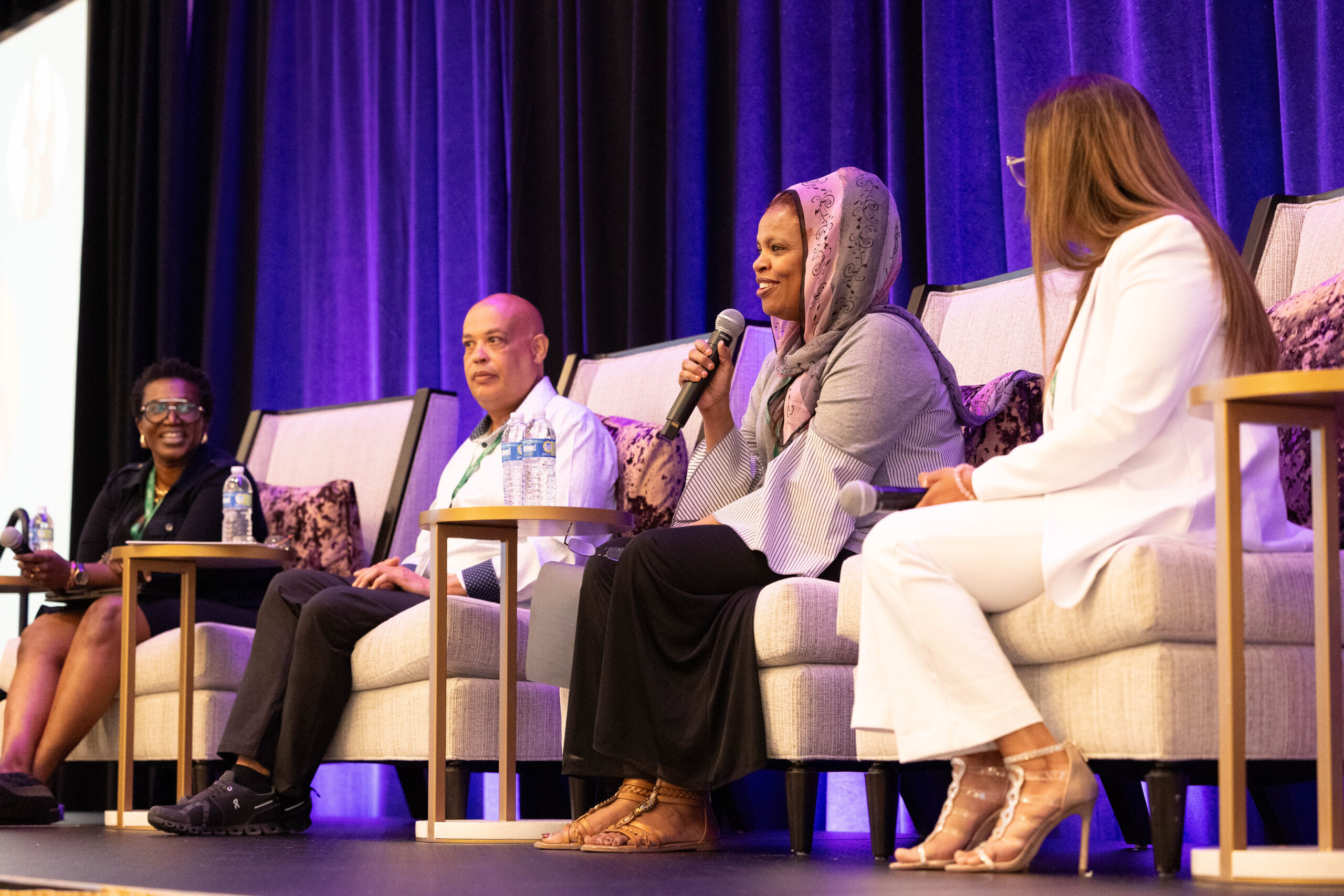
In the height of the COVID-19 pandemic, Community Catalyst launched its Vaccine Equity and Access Program (VEAP) to meet an urgent challenge: vaccine confidence and acceptance to address disparities in communities of color, at a time when lives literally depended on it. It was a tremendous responsibility and also an opportunity to demonstrate the power of our community-first public health work.
In the first year alone, Community Catalyst’s VEAP program partnered with over 90 community-based organizations across the country, providing more than 145,000 vaccines and reaching 51 million people through grassroots, community level outreach and engagement. Community partners are still hard at work, building vaccine confidence and reaching communities who have been traditionally under resourced and overlooked, when it comes to addressing vaccinations and other core public health and social determinant of health issues. Underpinning all of this work is our commitment to deliver on a new vision of our public health system with community at its core.
With that spirit in mind, the VEAP program recently experienced another milestone – after two years of organizing together, Community Catalyst staff and partners gathered in-person for the first time to share space, learn together, and reflect on the work ahead.
Here are some of the highlights and learnings from the first-annual VEAP Conference, where we brought together over 95 partners from across all 50 states and Puerto Rico:
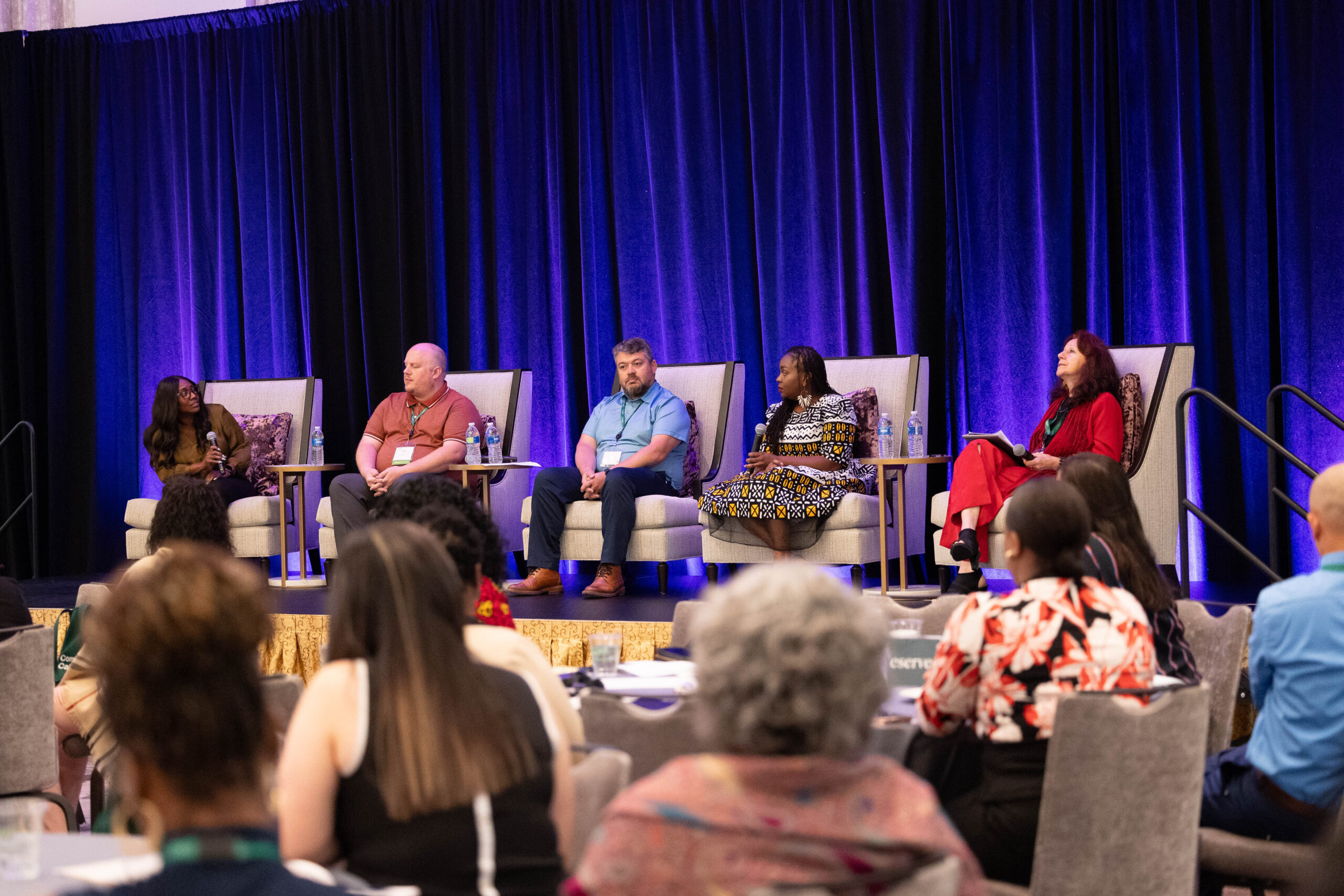
The importance of creating spaces to connect and center community
For many attendees, the VEAP conference offered an opportunity to make a previously virtual-only community of practice feel “real,” in a manner that embodies the values of community and care that so much of our shared vaccine equity work relies on.
Oftentimes, conferences tend to encourage networking and less focus is put on learning. But at this year’s VEAP conference, partners collaborated and brainstormed with one another and asked thought-provoking questions. They wrote in-depth notes, and came up with plans and ideas based on conversations and workshops. Partners took the opportunity to connect deeply and many made future plans to continue connecting after they left the conference. Unsure of what to expect from the conference, partners came with a mission to educate themselves, expanding their knowledge and expertise in providing and finding the best resources.
Community partners engaged in sessions focused on social determinants of health, motivational interviewing, program planning and evaluation, power building, and others. Feedback from community partners helped to identify training needs that will guide VEAP activities in 2024. These training needs included smaller networking sessions to connect with peers, and additional training for staff on motivational interviewing and power building.
Learning more about the amazing work of these partners and seeing them uplift topics that were important to them offered an opportunity to witness how dedicated our growing network of Community Based Organizations (CBOs) are to the mission of the VEAP program at Community Catalyst.
Based off this valuable feedback, VEAP aims to provide in-person motivational interviewing training for trusted messengers who were unable to attend the 2023 conference.
It’s very important for us to have these kind of conferences to bring people together, so that we can spread the information and it’s as simple as that.
Looking back at the conference’s inspiring impact on partners, two stories come to mind. One program manager shared that in her five years of working at her organization, she had not yet had an opportunity to attend a conference before. Leading up to the conference, she expressed her delight at being able to meet the VEAP team and be a part of a conference where she saw herself reflected. She shared that being at the conference expanded the way she viewed her organization’s impact. The excitement of the partner was invigorating and a reminder that community-first public health is part of a larger movement towards equity and representation.
In another powerful moment during the “Question and Answer” session of a mental health panel a beautician shared her story of how she became involved in VEAP to better support her clients. She shared the impact that her participation on a previous BIPOC Mental Health Awareness webinar, which Community Catalyst hosted, had and how she was seeking ways to integrate mental health into her community work, imploring the panelists to “help me, help them.” It was inspiring to see how she and other partners were always looking for ways to build power and better serve their communities.
In interactive sessions, community partners identified training needs that will inform VEAP programming and support going forward. These included the need for more time to brainstorm and workshop ideas with Community Catalyst, smaller networking sessions to connect with peers, and trainings for staff on motivational interviewing and power building.
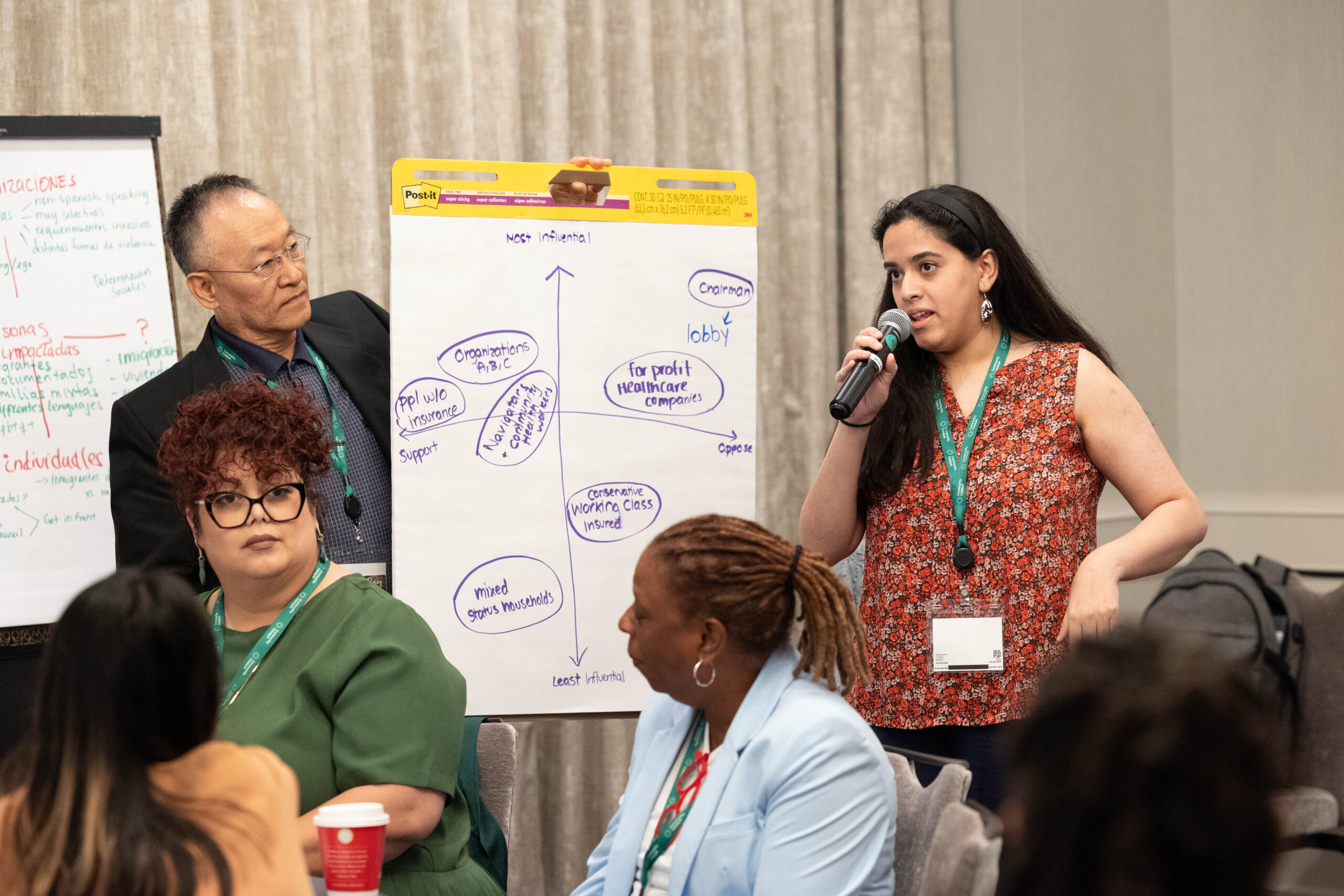
At various breakout sessions, attendees noted that they enjoyed the sessions so much that they wanted them to last longer. Conference attendees liked hearing more from people with deep commitment to this work and said they appreciated seeing themselves represented on stage and in conversation. For Community Catalyst, multiple compliments and praise of thankfulness like this meant that this conference offered a one-of-a-kind experience.
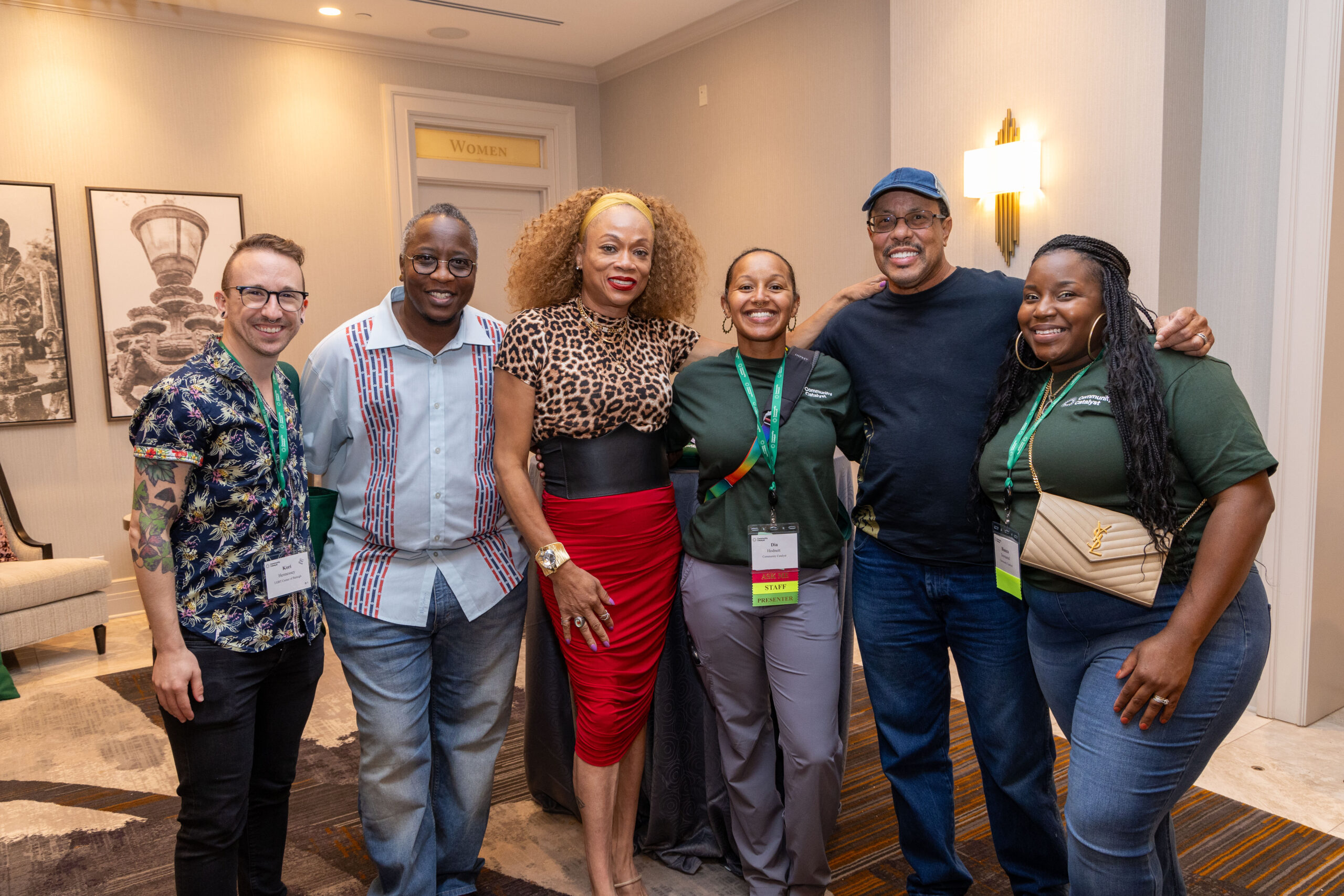
While facilitating a conference presentation with two VEAP partners, Trans(Forming) and LGBT Center of Raleigh, the goal was to do justice to the communities represented and provide as much information as possible to attendees. Both partners shared how it felt good to share their best practices amongst their peers and stand in solidarity with the LGBTQ+ community.
Learning more about the amazing work of these partners and seeing them lift up topics that were important to them offered an opportunity to witness how dedicated our growing network of Community Based Organizations (CBOs) are to the mission of the VEAP program at Community Catalyst.
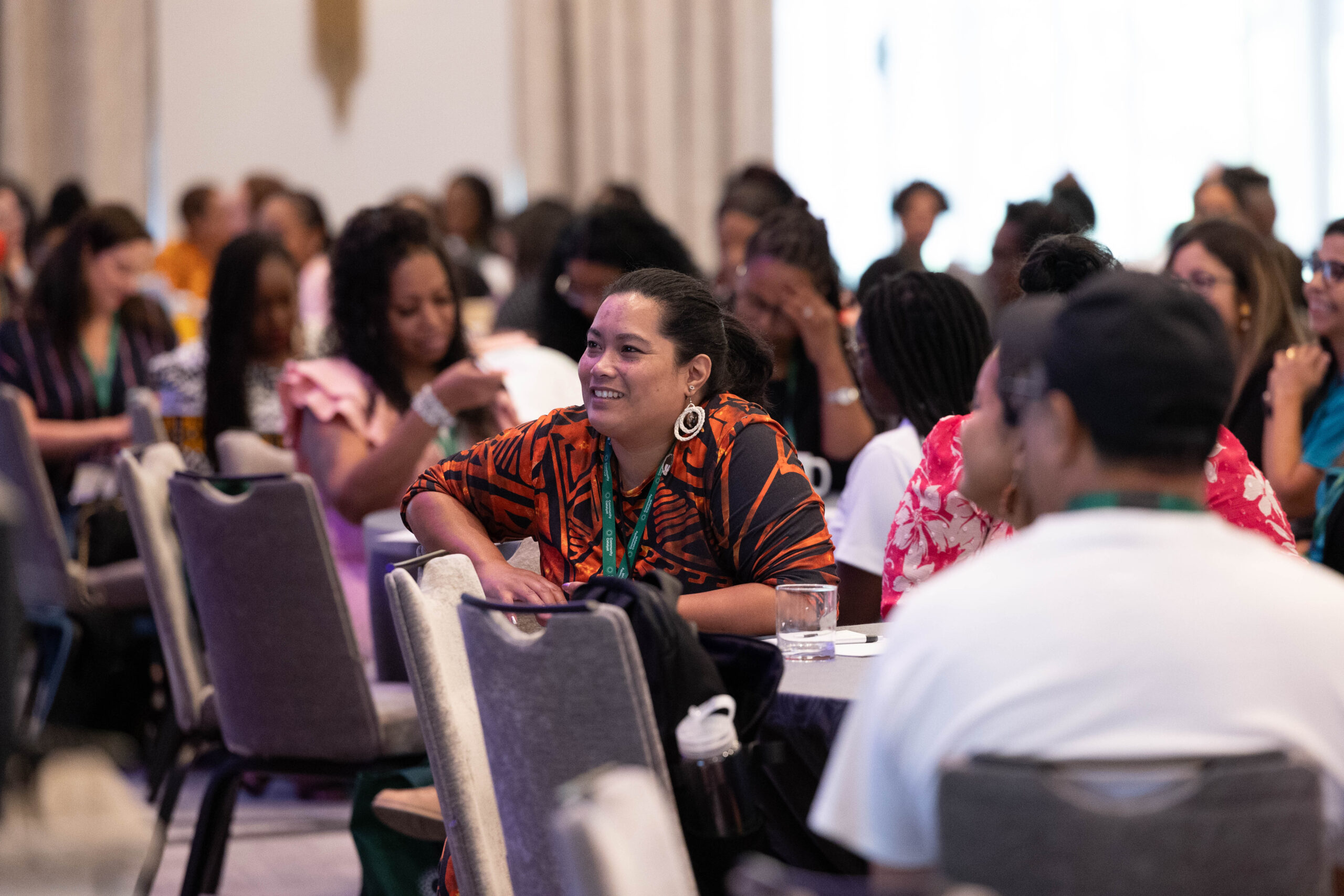
Identifying opportunities to overcome barriers and scale what’s working
The past two years have provided many learning opportunities for Community Catalyst. Even as we and our partners have achieved tremendous progress, we still encounter many barriers that reinforce the reality that vaccine equity does not always equate to true access for all. For instance, with the adult vaccination supplemental funds we’re able to provide to our community partners, there are still barriers due to the cost of many vaccines. In addition, vaccine providers do not always have vaccines on site. While evaluating the first two years of the VEAP project, we found that pop-up vaccine clinics and clinics that do not require registration are most successful. Furthermore, access to vaccines increased significantly when vaccines were additionally accessible in non-traditional spaces, such as bars, churches, and spaces open during evening hours.
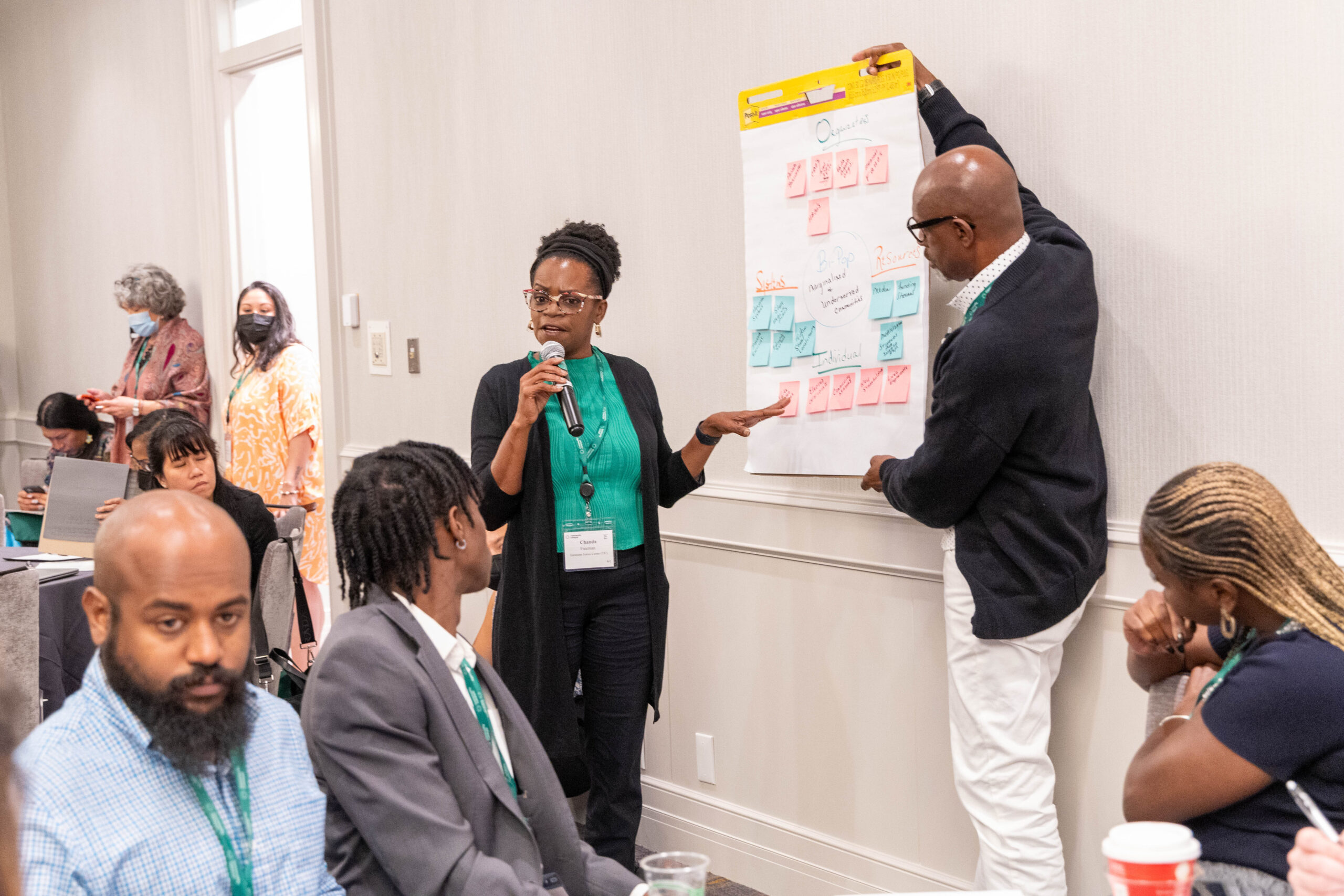
While community partners will continue to address vaccine equity from a holistic standpoint, as we move into the new year, the VEAP program will place a special focus on outreach to individuals who are uninsured and underinsured. Since the end of the federal public health emergency, permanent investments in adult and child vaccine coverage in communities experiencing health disparities, have yet to be enacted into law. In the interim, the CDC introduced The Bridge Access Program for COVID-19 Vaccines and Treatment (Bridge Program), which is slated to be begin in the fall of 2023 and end in December 2024. The Bridge Program will provide free COVID-19 vaccines to uninsured adults or those with health insurance plans that do not cover COVID-19 vaccine costs. To maximize this opportunity, Community Catalyst will provide our VEAP community partners with an ongoing list of vaccine providers that are participating in the Bridge Access Programs and continued resources to support their health education and community outreach efforts.
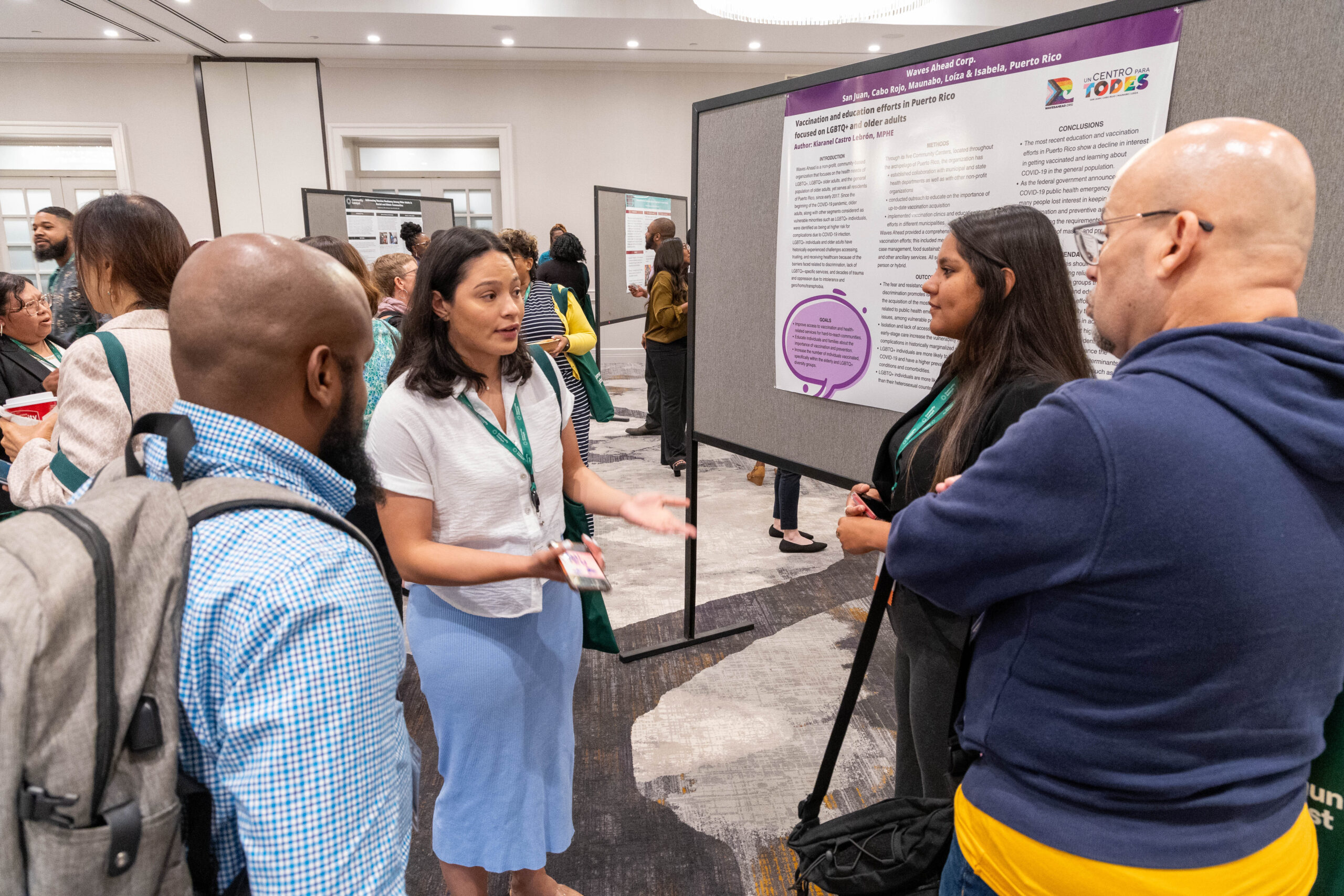
The VEAP conference was a tremendous experience for attendees and we are excited to share these learnings and next steps with the wider community. Looking at the work of the past three years and having the opportunity to gather in-person with advocates and partners from across the country truly reaffirmed the power of community-first public health. Our team is looking forward to continuing to partner with community organizations across the country and living into our core value that the public should be at the center of public health.
If you would like to join the conversation around vaccine equity, please visit our Soapboxx page and record your own video message.